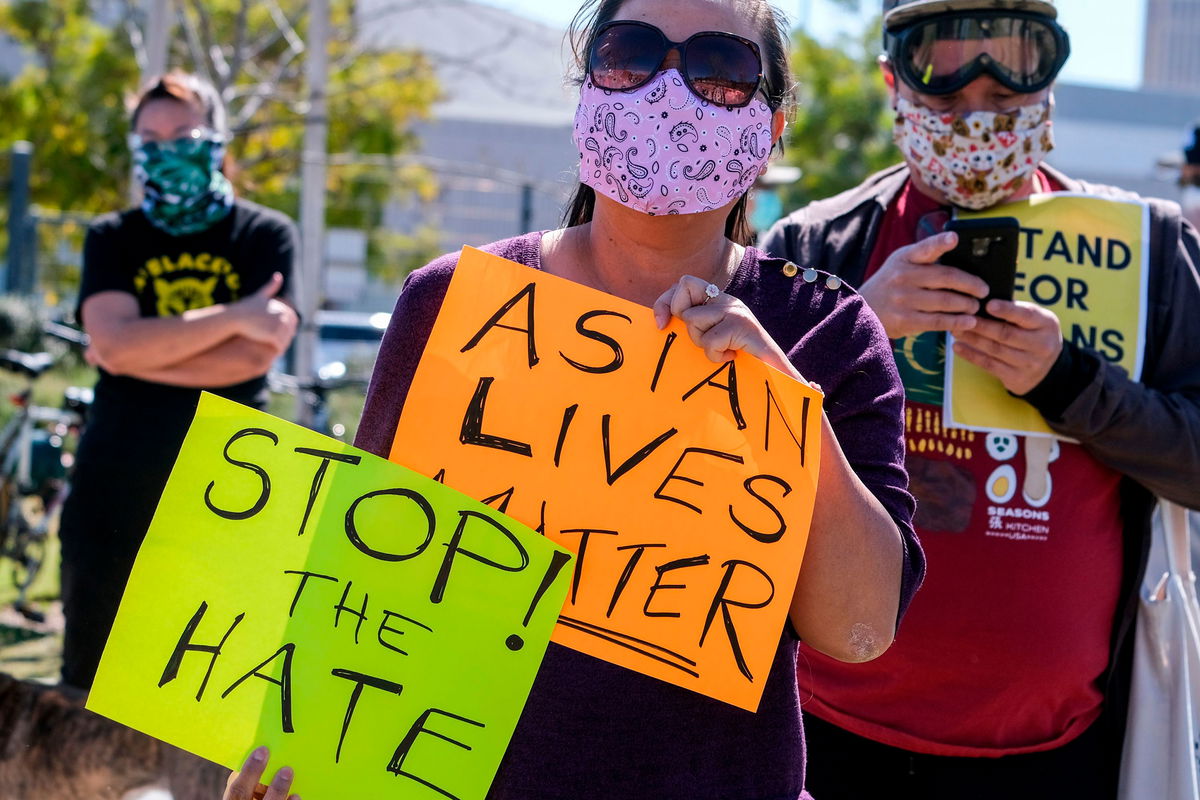California allocates $1.4 million to track and stop attacks against Asian Americans

Lawmakers in California this week allocated $1.4 million in state funds to help Asian Americans report hate incidents after a string of recent violent attacks in the state.
“The rise in hate incidents against Asian Americans during the pandemic is alarming. But, we can’t solve a problem without knowing how big it is,” said Assemblymember Phil Ting of San Francisco and chair of the state’s budget committee.
The funds will support the work of researchers at the Asian American Studies Center at the University of California Los Angeles as well as several initiatives including the Stop AAPI Hate website, which began collecting reports of racism and discrimination against Asian Americans on March 19 last year.
Ting said he hopes the new state funding will “lead us to solutions that will make all communities safer.”
Since the Covid-19 pandemic began spreading in the United States, advocates and authorities have received reports of thousands of xenophobic attacks against Asian people. In California, several people have been violently shoved, robbed and left severely injured in recent weeks.
From March to the end of 2020, the Stop AAPI Hate website received more than 2,800 firsthand reports of anti-Asian hate across 47 states and Washington, DC, according to data released earlier this month.
The majority of those incidents — about 71% — were cases of verbal harassment, while shunning or avoidance made up about 21%. About 9% of the incidents involved physical assaults, and 6% included being purposely coughed or spit on, according to a Stop AAPI Hate news release.
The funding allocated by California lawmakers will support the data collection and the advocacy efforts done by a coalition of organizations involved in the initiative, including offering resources to those directly to impacted by the attacks.
“In the past year, we have seen that it is absolutely critical to invest in tracking the number of hate incidents against Asian Americans that are taking place. Documenting and analyzing the attacks — both in California and across the country — has enabled us to draw attention to this crisis, ensure that our community is not ignored, and advocate on its behalf,” the Stop AAPI Hate Coalition said in a statement.
‘Horrific’ and ‘senseless’ acts
The announcement comes nearly a week after a man left a dead cat at an Asian American woman’s butcher shop in Sacramento. Police are now investigating it as a hate crime. Owner Kelly Shum told CNN’s Brianna Keilar that a customer saw “this terrible looking cat” in the parking lot of her family business, Mad Butcher Meat Company, in Sacramento.
Shum says she initially thought the animal was roadkill but “it was very obvious that someone had left the cat there, the cat’s body was so mangled that it was obvious that it was meant to send a message, that it was meant to be seen.”
The person in the shop’s surveillance video seen dumping the cat on February 22 matches video of a man who recently patronized the business. Shum says the man left her a message after “seeing his face all over the news and he claims that he turned himself into the police but that nothing happened, which was extremely disappointing.” She plans to follow up with the man and the Sacramento Police Department (SPD).
The family posted a security guard at the store which Shum acknowledges is unusual for such a shop but points to this kind of behavior against Asians as a primary reason. She teared up as she spoke about her employees who are mostly Chinese, like her family.
When her sister was enforcing mask-wearing, someone tried to attack her. “They called her ‘China virus’ and ‘coronavirus,” Shum said. “Anti-Asian sentiment has always been there and I’ve always dealt with it but never in the level that I have in the last year.”
In late January, an 84-year-old Thai immigrant had recently received the coronavirus vaccine and was walking in the Anza Vista neighborhood when a man ran across the street and violently shoved him to the ground in what San Francisco District Attorney Chesa Boudin called “a horrific, senseless attack.”
Vichar Ratanapakdee never regained consciousness.
His family said the attack was more than an example of someone preying on the vulnerable and elderly. They called it a hate crime — despite a lack of evidence pointing solely to anti-Asian bigotry — and part of a months-long spike in hate and violence against the community.
“This wasn’t driven by economics,” said Eric Lawson, Ratanapakdee’s son-in-law. “This was driven by hate.”
Bill part of a larger legislative package
The one-time funding is part of California’s AB85 budget bill and was signed into law by Gov. Gavin Newsom on Tuesday. It was included in a legislative package aimed at providing urgent relief to individuals, families and businesses facing hardship due to the Covid-19 pandemic.
“The history of the Asian American Pacific Islander community in the United States has been punctuated by times of racism and hate including the Chinese Exclusion Act, the unjust incarceration of Japanese Americas in World War II, the murder of Vincent Chin, hate crimes against Sikhs after 9/11, and most recently, attacks and murder of API seniors incited by racist rhetoric about the COVID pandemic,” said Dr. Richard Pan, chair of California’s Asian Pacific Islander Legislative Caucus.
The funding will also support a website developed by UCLA faculty that translates Covid-19 medical facts into dozens of languages, including Japanese and Vietnamese, and research focused on how the pandemic has impacted Asian-owned businesses, homeowners and renters.
“Covid-19 has had devastating and disparate impacts on many Asian American and Pacific Islander communities alongside other communities of color,” said Karen Umemoto, holder of the Helen and Morgan Chu Endowed Director’s Chair of the Asian American Studies Center.



